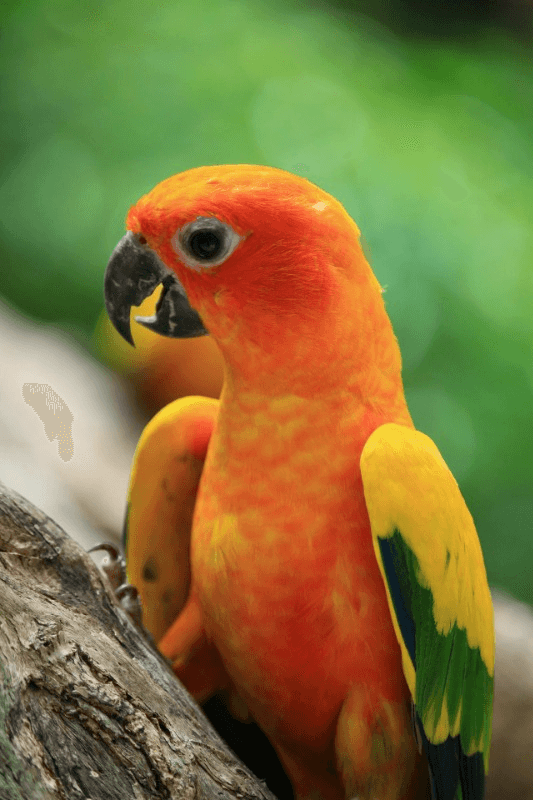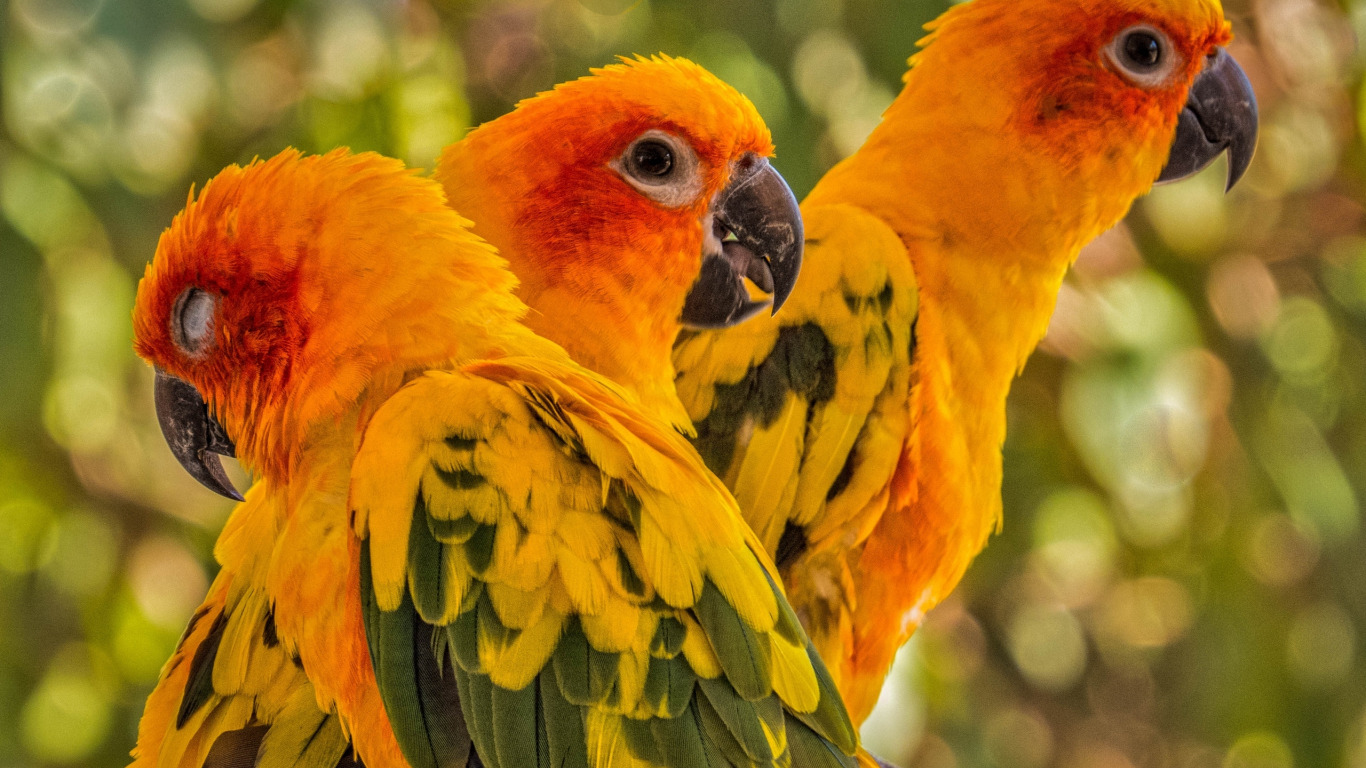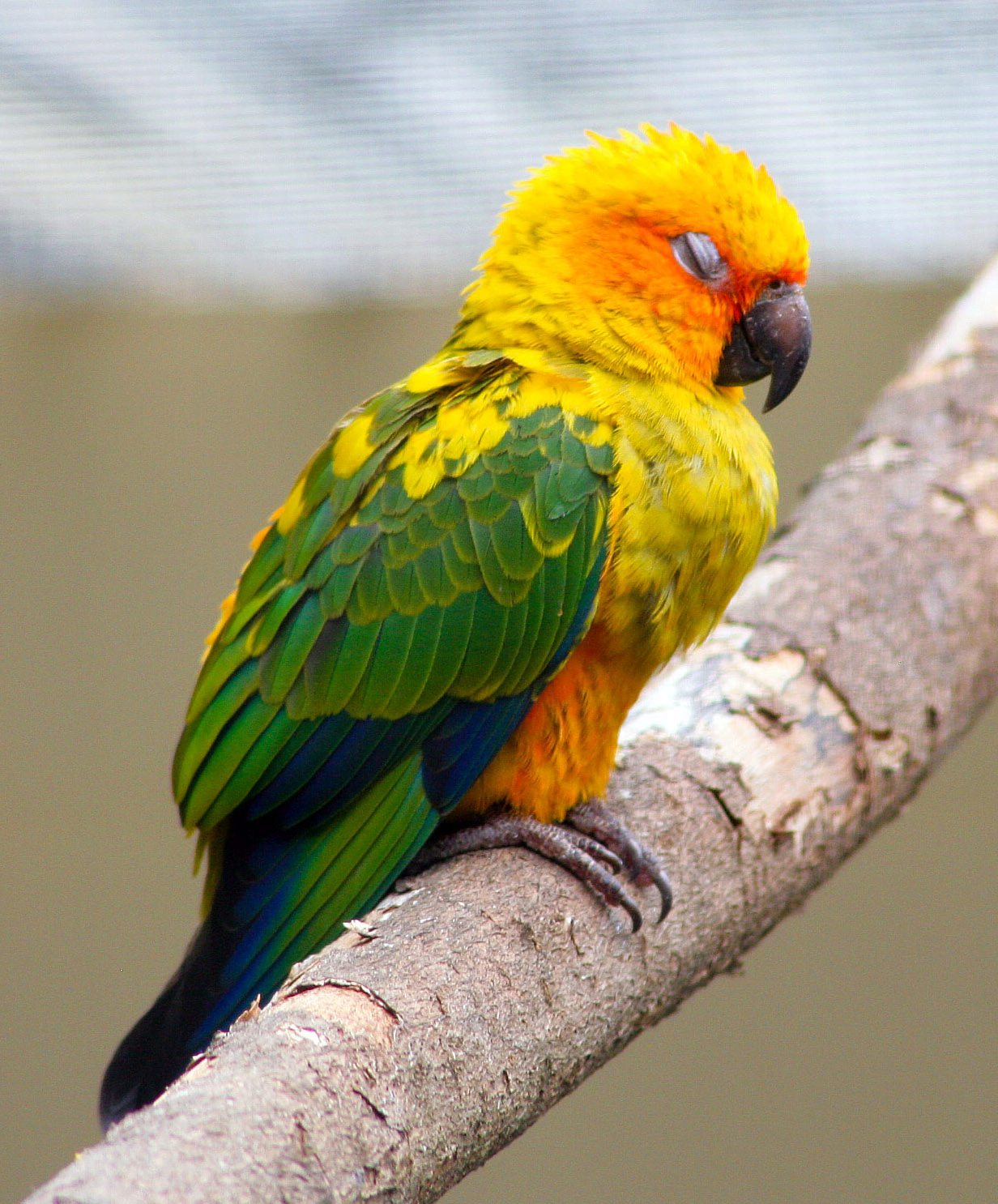Conures, vibrant and active members of the parrot family, have captured the hearts of bird enthusiasts worldwide. Their striking colors, intelligence, and playful nature make them fascinating companions for those willing to invest time into their care and socialization. However, navigating the world of conure ownership is not without its challenges. From understanding their complex dietary needs to providing ample mental stimulation and managing their loud vocalizations, prospective and current owners must arm themselves with knowledge to ensure these spirited birds thrive in captivity. This blog post aims to shed light on the essential aspects of conure care, offering practical advice and insights to help you foster a healthy, happy relationship with your feathered friend.
Key Takeaways
- Conures make vibrant and energetic pets, ideal for those who appreciate interactive birds with lively personalities.
- Regular vet check-ups and a balanced diet are crucial for maintaining your conure’s health; pay close attention to their nutritional needs as outlined in the Health and Care section.
- Creating a stimulating environment with plenty of space for play and exercise is key to a happy conure, as discussed in the Living with a conure section.
- When considering adding a conure to your family, always opt for reputable breeders or adoption centers to ensure you’re getting a healthy and well-socialized bird.
- Understanding the unique characteristics of different conure breeds, as detailed in the Breed Overview, will help you choose the right companion that matches your lifestyle.
- Engage with the conure community for support and advice on care, behavior, and adoption to enrich your experience as a conure owner.
Breed Overview
History
Conures trace their roots back to the lush landscapes of South America and the Caribbean. These birds have thrived in wild habitats, adapting to various environments from dense forests to mountainous regions. Over time, conures have been domesticated, finding a place in homes around the world.
Their presence in indigenous cultures is significant. Many tribes regarded conures as symbols of color and life. They often appear in folklore, representing joy and freedom. This cultural connection underscores the deep bond between humans and these vibrant creatures.
Physical Characteristics
Conures are known for their compact size and manageable weight, making them ideal pets for bird enthusiasts. They typically measure between 10 to 20 inches from head to tail, with their weight ranging from 70 to 150 grams depending on the species.
The color variations among conure species are striking. From the bright green of the Green-Cheeked Conure to the vivid blue and yellow of the Sun Conure, these birds display a rainbow of hues. Their beak shape is robust and curved, designed for cracking open nuts and seeds. The tail length varies by species but generally adds to their graceful silhouette.
Personality and Temperament
Conures are celebrated for their playful nature and insatiable curiosity. They love exploring their surroundings and can often be found engaging with toys or interacting with their human companions.
ial interaction is crucial for conures. They thrive on attention and can form strong bonds with their owners. However, potential owners should be aware of their capacity for loud vocalizations. While this trait reflects their spirited personality, it can be challenging in certain living situations.

Health And Care
Common Health Issues
Conures, like all pets, can face health challenges. Feather plucking and respiratory infections are common ailments. Owners should ensure their conures have regular veterinary check-ups to catch any issues early.
Signs of stress or illness in conures include changes in eating habits, lethargy, and unusual feather loss. These signs shouldn’t be ignored. Early detection is key to managing health problems effectively.
Dietary Needs
A balanced diet is crucial for a conure’s health. This diet should include a variety of fruits, vegetables, and high-quality pellets. Owners must provide clean, fresh water daily to keep their birds hydrated.
Certain foods are toxic to conures and must be avoided. These include avocado and chocolate. Knowing what foods are safe is essential for their well-being.
Exercise Requirements
Conures need daily out-of-cage time for exercise and mental stimulation. Flying in a safe, enclosed space helps them stay fit and happy.
Interactive toys also play a vital role in keeping them engaged and preventing boredom. These activities contribute significantly to their physical and mental health.
Grooming
Regular baths or showers promote healthy feathers in conures. Nail and beak trimming are necessary grooming tasks that help prevent discomfort and mobility issues.
Owners should also monitor their birds for parasites and skin issues regularly. Maintaining good grooming practices ensures your conure stays comfortable and healthy.
Living with a Conure
Training and Socialization
Conures shine with their bright intelligence and eagerness to learn. They can perform impressive tricks, showcasing their ability to understand complex commands. Their capacity for learning is not just about tricks; it also extends to emotional intelligence. They thrive on interaction, making early socialization crucial.
To ensure they grow into well-adjusted pets, introduce them to various people and other birds when they’re young. This helps prevent future aggression or fearfulness. Positive reinforcement training methods work best. Use treats and praise to encourage desired behaviors. Remember, patience and consistency are key.
Environment
A conure’s cage is more than just a space for sleeping; it’s their home within your home. For comfort and safety, the ideal cage size should be at least 20 inches by 20 inches by 36 inches. However, bigger is always better. Ensure it’s sturdy and free from hazards.
The cage should sit in a quiet yet social area of the house where they can observe daily life without stress from constant noise or commotion. Inside the cage, include multiple perches of different textures and diameters to help keep their feet healthy. Toys are essential too, for both physical exercise and mental stimulation.
Activities They Enjoy
Conures possess a playful spirit that loves engagement through interactive games. Fetch and puzzle toys not only entertain them but also challenge their intellect. These activities foster a strong bond between you and your feathered friend.
Their ability to mimic sounds and simple words adds another layer of enjoyment for both pet and owner. Spend time each day practicing words or whistles; this stimulates their minds and strengthens your relationship. Regular bonding activities like gentle petting or having conversations with your conure will make them feel loved and part of the family.

Breeder Advice and Adoption
Choosing a Breeder
When looking for a conure, it’s crucial to find a reputable breeder. This ensures your future pet is healthy, well-socialized, and has been raised in good conditions. Start by researching breeders who are transparent about their breeding practices and prioritize the health and welfare of their birds.
Ask potential breeders about the bird’s origin, health history, and temperament. These questions can help you gauge how well the breeder knows each bird and their commitment to their animals. It’s also essential to inquire about any genetic testing or health guarantees provided.
Visiting the breeding facility is highly recommended. This allows you to observe the conditions in which the birds are kept. Look for clean, spacious environments that offer plenty of enrichment for the conures. Healthy birds should be active and alert, showing no signs of neglect or illness.
Adoption
Adopting a conure from rescue organizations or shelters can be a rewarding experience. Many birds in these settings are looking for new homes due to previous owners’ inability to care for them. By choosing adoption, you’re giving a bird a second chance at a happy life.
Older conures available for adoption may already be socialized, which is an advantage. They often adapt quickly to new environments and can form strong bonds with their new owners. Adopting an older bird allows you to skip the demanding early stages of care that younger birds require.
Here are some tips for integrating an adopted conure into your home:
- Spend time daily interacting with your new bird to build trust.
- Introduce them slowly to other pets and family members.
- Provide toys and activities that encourage natural behaviors.
- Ensure they have a quiet place to retreat when they feel overwhelmed.
Misc.
Popular Names
Choosing a name for your conure is more than just a fun activity; it’s an opportunity to reflect their vibrant personality or striking colors. Popular names often draw inspiration from their bright plumage, such as “Sunny” for a Sun Conure or “Emerald” for a green-cheeked variety. Others might be named after famous conures or based on their playful nature, like “Rascal” or “Mischief”.
It’s wise to pick a name that’s easy for the bird to recognize and respond to. This enhances bonding and training. Many owners find joy in selecting names based on quirky behaviors or traits unique to their feathered friend. For instance, a conure who loves spinning might be aptly named “Twister”.
Fun Facts
Conures are not just colorful birds; they are also incredibly smart. They possess surprising problem-solving skills, which can be observed during playtime or training sessions. This intelligence makes them engaging pets that love interactive toys and games.
Another remarkable aspect of these birds is their longevity. With proper care, some conures can live up to 30 years, making them long-term companions. Their lifespan underscores the commitment required in caring for these creatures but also promises many years of joy and friendship.
In the wild, conures exhibit unique behaviors that captivate bird enthusiasts. They are known for communal roosting, where groups gather together at night for safety and warmth. They enjoy bathing in rainwater, a delightful sight illustrating their playful nature and adaptability to their environment.
Final Remarks
Conures offer a vibrant addition to any home, with their dynamic personalities and colorful plumage. They require dedicated care, a suitable living environment, and attention to their health needs, as outlined in the sections above. Prospective owners should seek reputable breeders or consider adoption, ensuring these birds receive a loving, permanent home. Their longevity and social nature make them excellent companions, yet it’s crucial to understand the commitment involved.
Engaging with conures enriches lives, fostering a unique bond between bird and owner. It’s important for individuals to research thoroughly and prepare for the responsibility of keeping such a spirited pet. For those ready to embark on this journey, conures promise years of joyous interaction and mutual affection. Let this guide serve as a stepping stone towards informed and compassionate conure care.
Frequently Asked Questions
What is the lifespan of a conure?
Conures can live up to 30 years with proper care, including a balanced diet and regular veterinary check-ups.
How often should I take my conure to the vet?
Annual wellness exams are recommended for conures to ensure they maintain good health. More frequent visits may be needed for specific health concerns.
What type of diet is best for a conure?
A balanced diet for a conure includes high-quality pellet food, fresh fruits, vegetables, and occasional seeds or nuts as treats.
Can conures be taught to talk?
Many conures are capable of learning to mimic words and sounds, with variation in ability depending on the individual bird and species.
What should I consider before adopting a conure?
Before adopting a conure, consider their long lifespan, need for social interaction, potential noise level, and the time required for daily care and enrichment activities.
How can I find a reputable conure breeder?
Look for breeders who prioritize the health and well-being of their birds, provide detailed health records, and are willing to answer all your questions about their breeding practices.
Are conures suitable pets for families with children?
Conures can be suitable for families with children who understand how to interact gently and respectfully with animals. Supervision during interactions is always recommended.






0 Comments